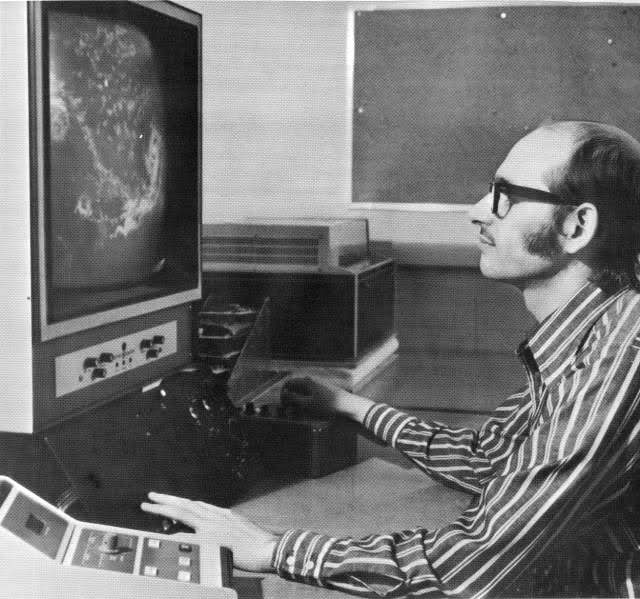From Mark Potts’ Recovering Journalist (via the Atlantic), the opening of a 1992 letter by Bob Kaiser, Managing Editor of the Washington Post, which pinpointed exactly where print news was headed:
“August 6, 1992
To: Don Graham, Alan Spoon, Ralph Terkowitz. Tom Ferguson, Tuesday Group Vice Presidents
From: Bob Kaiser
John Sculley’s invitation to attend an Apple-organized conference
on the future of ‘multimedia’ – computers, telecommunications,
television and other entertainment media, and traditional news
media – gave me a good opportunity to learn and to think about The
Post’s place in a fast-changing technological environment. This is
a brief report on the conference and thoughts that occurred to me
while attending.
+ + +
Alan Kay, sometimes described as the intellectual forefather of the
personal computer, offered a cautionary analogy that seemed to
apply to us. It involves the common frog. You can put a frog in a
pot of water and slowly raise the temperature under the pot until
it boils, but the frog will never jump. Its nervous system cannot
detect slight changes in temperature.
The Post is not in a pot of water, and we’re smarter than the
average frog. But we do find ourselves swimming in an electronic
sea where we could eventually be devoured — or ignored as an
unnecessary anachronism. Our goal, obviously, is to avoid getting
boiled as the electronic revolution continues.
I was taken aback by predictions at the conference about the next
stage of the computer revolution. It was offered as an
indisputable fact that the rate of technological advancement is
actually increasing. Dave Nagel, the impressive head of Apple’s
Advanced Technology Group, predicted “the three billions” would be
a reality by the end of this decade: relatively cheap personal
computers with a billion bits of memory (60 million is common
today), with microprocessors that can process a billion
instructions per second (vs. about 50 million today) that can
transmit data to other computers at a billion bits per second (vs.
15-20 million today). At that point the PC will be a virtual
supercomputer, and the easy transmission and storage of large
quantities of text, moving and still pictures, graphics, etc., will
be a reality. Eight years from now.
I asked many purported wizards at the conference if they thought
Nagel was being overoptimistic. None thought so. The machines he
envisioned will have the power to become vastly more user-friendly
than today’s PC’s. They will probably be able to take voice
instructions, and read commands written by hand or an electronic
notepad, or right on the screen. None of this is science fiction –
– it’s just around the corner.”
Tags: Bob Kaiser, Mark Potts

